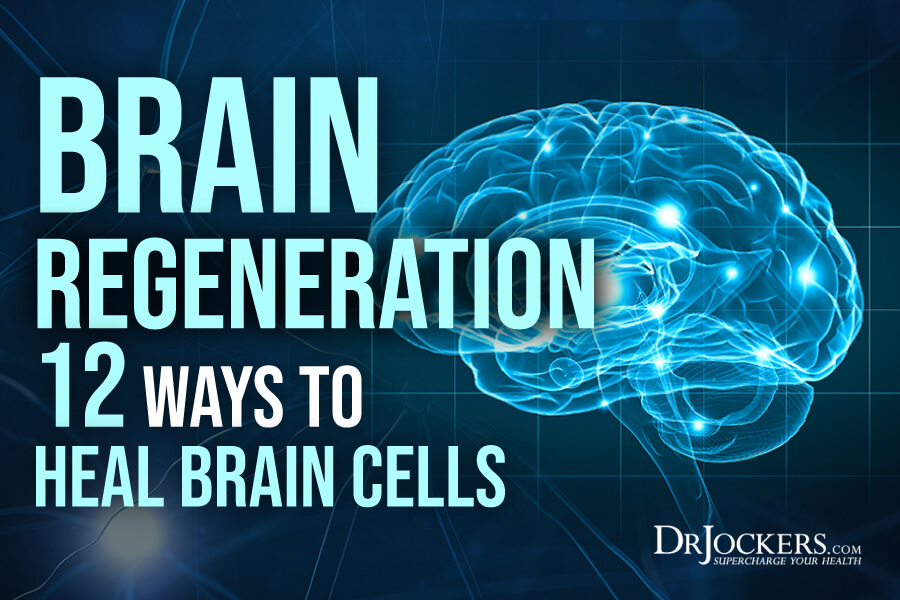 Brain Regeneration: 12 Ways to Heal Brain Cells
Brain Regeneration: 12 Ways to Heal Brain Cells
Brain regeneration is an important concept that is critical in today’s environment. Your brain is the command center of your nervous system and the center of all of your body’s functions and systems. The health of your brain is essential for your memory, learning, mental energy, and mood, and the prevention of mental health issues and neurodegenerative disorders.
Even though most of your brain cells are formed in the womb and during infancy, new research suggests that your brain is able to regenerate and create new cells throughout your life. This means that you can keep your brain healthy, mental energy, and memory even as you age.
In this article, you will learn what brain regeneration, BDNF, and neuroplasticity are and why they are important for brain health. You will understand the most common things that can damage your brain. I will also share 12 powerful ways to heal your brain cells and support your brain health naturally.
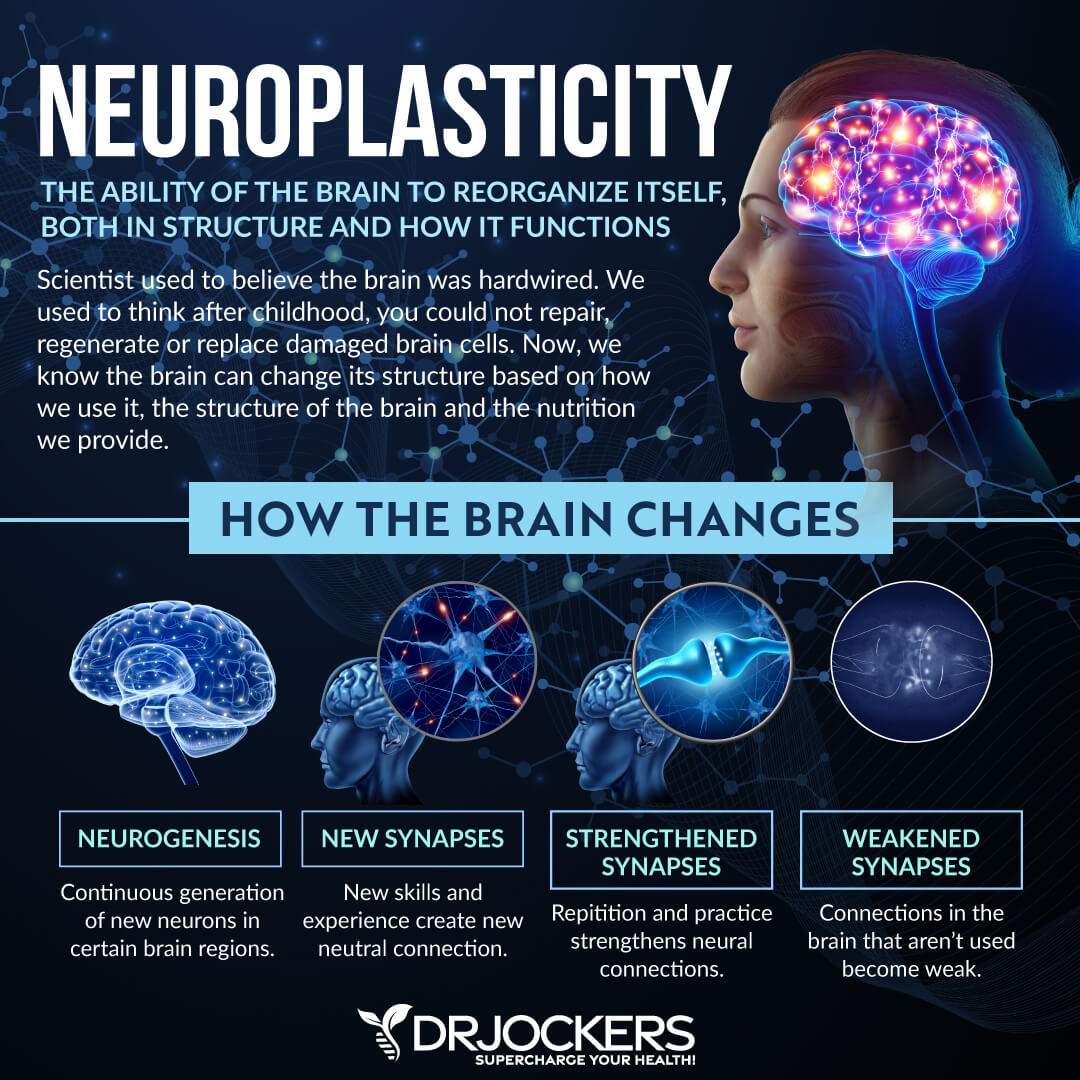
What is Brain Regeneration?
Your brain is one of your most important organs. It is the center of all of your body’s functions and systems. It serves as a command center for your nervous system that perceives stimuli, activates responses, and obtains and sends signals across your body to keep you safe and healthy. Your brain is also the place where your memory is stored and learning, cognition, and individual growth is happening.
Clearly, the health of your brain is critical and should be protected. You may think that it is normal for your brain to decline with age, however, that is not necessarily the case. Nutrition, lifestyle habits, and other factors all affect your brain health. More importantly, and contrary to old beliefs, your brain is able to generate new brain cells.
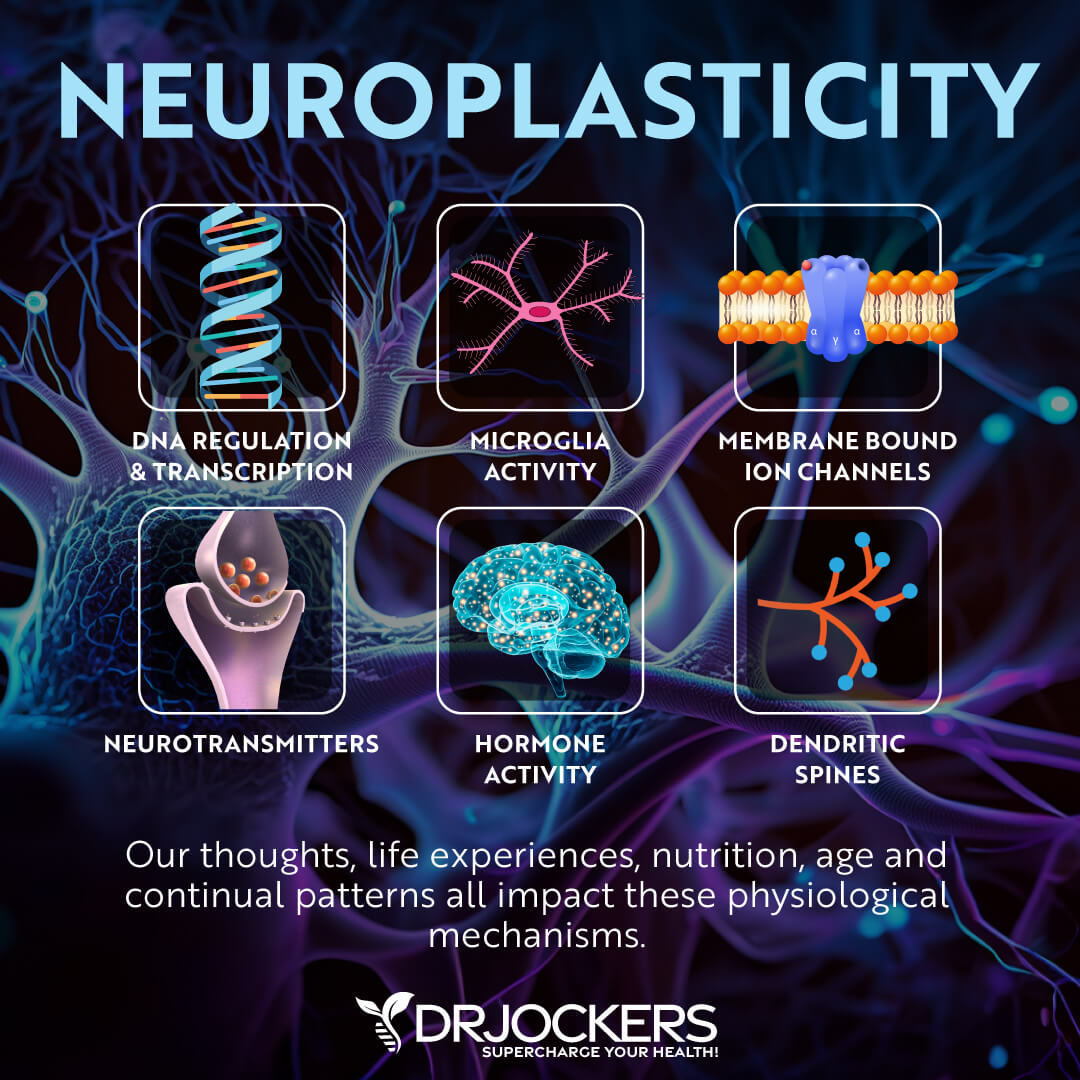
How Brain Regeneration Works
Most of your brain cells are formed while you were in your mother’s womb. Other neural cells of your brain develop during infancy. Until recent decades, doctors believed a certain level of brain degeneration was inevitable because your brain had a limited capacity to regenerate. Now we know better.
New research from the last two decades suggests that your brain is actually able to create new cells throughout your lifespan and brain regeneration is possible. Your brain actually still creates about 700 new neurons per day in the hippocampus. This allows the hippocampus to maintain its central function.
The science of neurogenesis suggests that aerobic exercise, brain exercises, stress relief, and other lifestyle habits can encourage brain regeneration, improve your brain health, and may help to prevent or treat degenerative diseases, such as Alzheimer’s and Parkinson’s disease, or reverse damage from traumatic brain injury (1, 2, 3, 4, 5, 6).
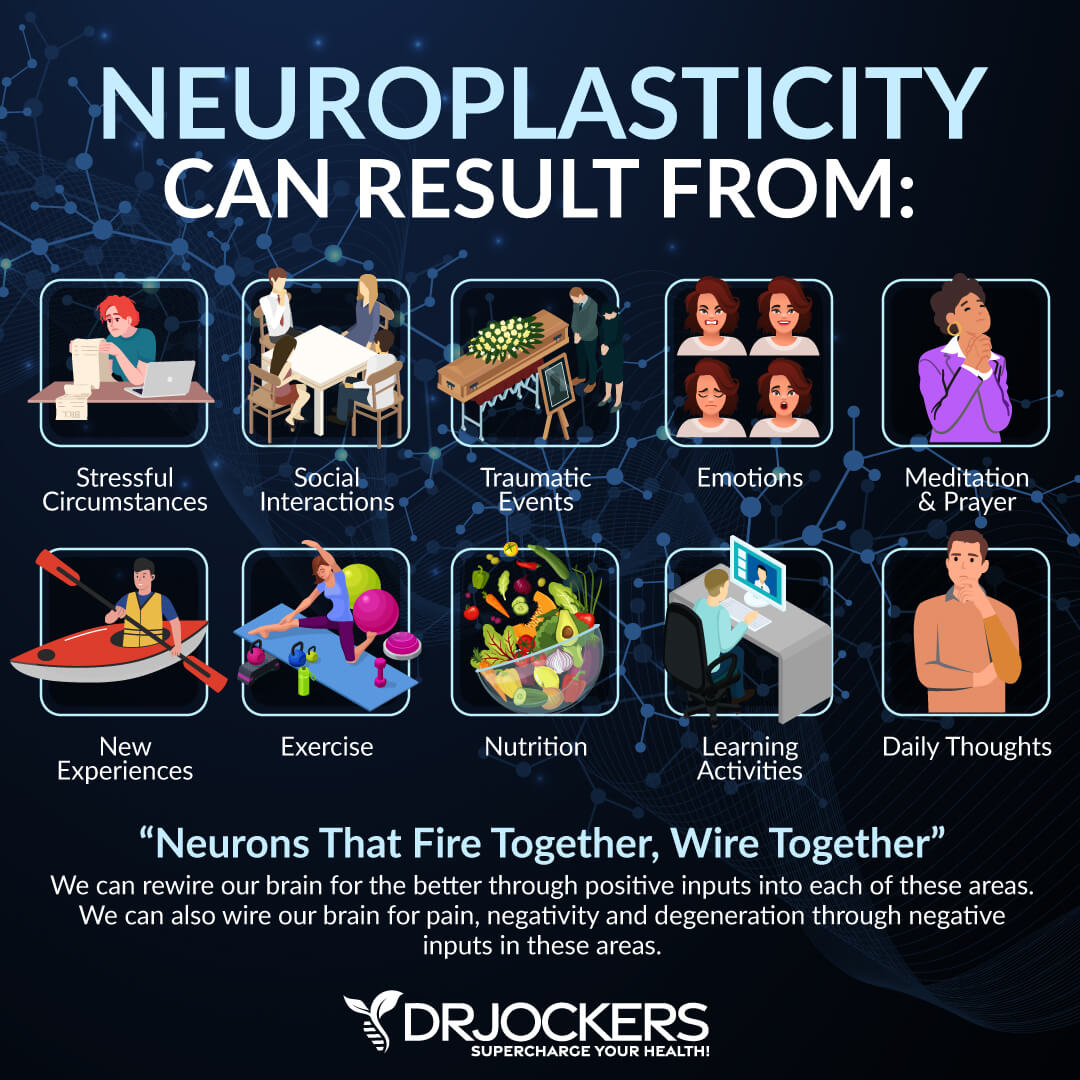
BDNF and Synaptic Plasticity
Brain-derived neurotrophic factor or BDNF is a protein produced inside your nerve cells to help your brain to communicate and function properly. It protects neurons, encourages their growth, improves their functions, and helps them to survive by protecting them from premature cell death. It also strengthens the signal between neurons by binding to the receptors at the synapses.
BDNF is essential for optimal brain function and a key player in brain regeneration. It plays an important role in learning and memory. It regulates various body functions, including eating and drinking.
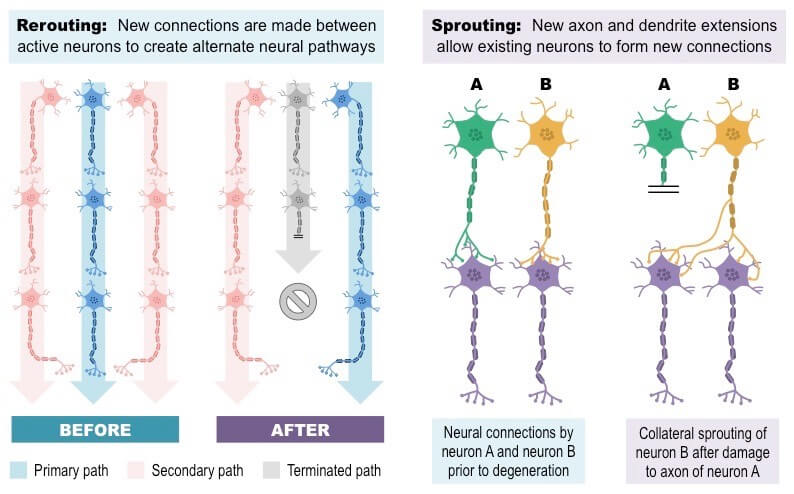
Brain Regeneration and Synaptic Density
Synapses are junctions between neurons that allow communication. Synaptic plasticity is the change that happens at synapses and affects the quality of the communication between two neurons. Short-term synaptic plasticity is a rapid, sub-second change that reverts to normal quickly.
Long-term synaptic plasticity is a longer change that may last for minutes, hours, days, or years. Long-term synaptic plasticity is critical for our brain’s ability to store information and for our memory.
Research has shown that BDNF is critical for long-term enhancement of synaptic efficacy. It improves neural development and synaptic plasticity, hence it may lower the risk of neurodegenerative and psychiatric disorders, such as dementia, Alzheimer’s disease, Huntington disease, and depression (7, 8, 9, 10, 11, 12, 13).
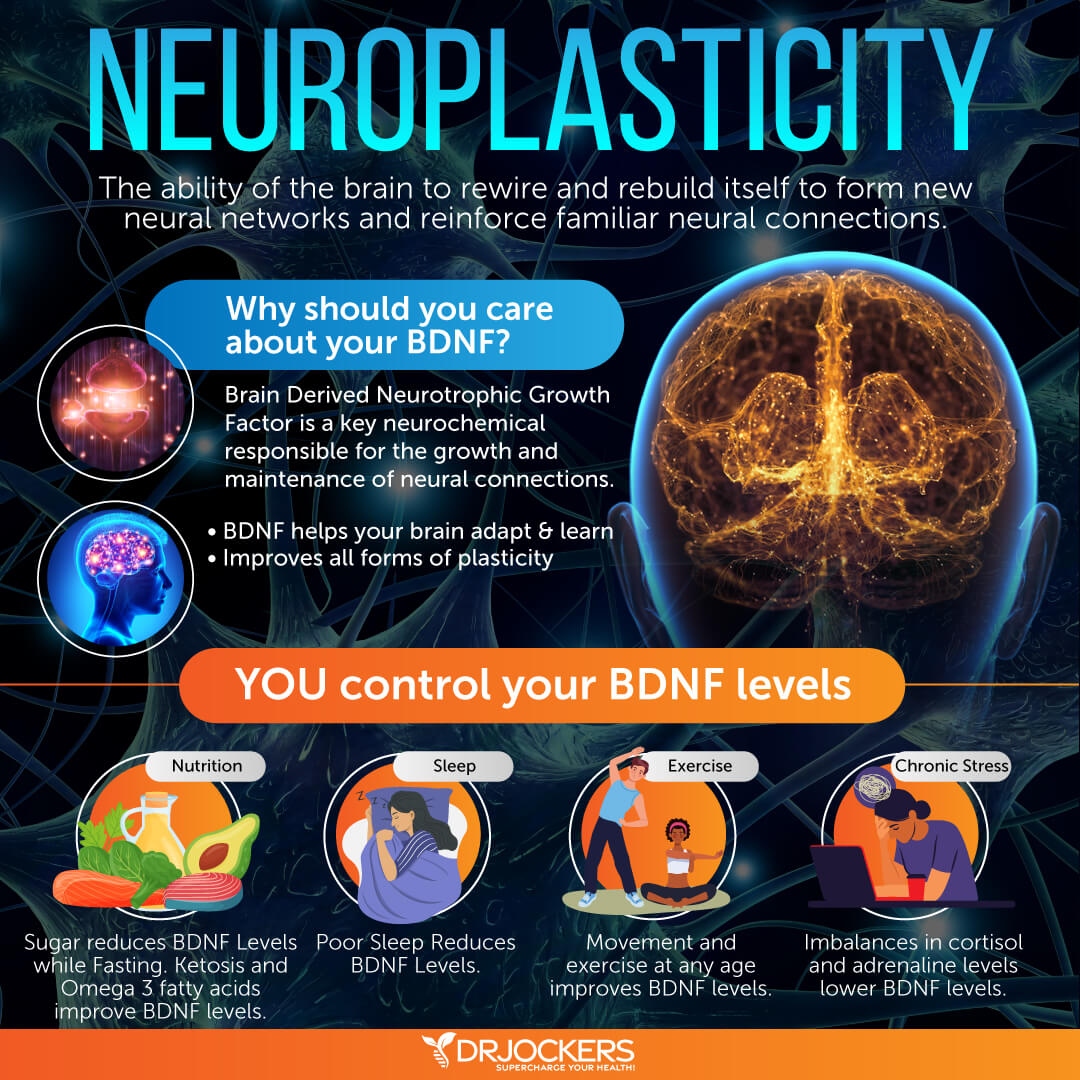
Things That Damage Our Brain
Your diet, lifestyle, and overall health have everything to do with your brain health. Let’s take a look at the things that can damage our brain.
Blood Sugar Imbalances
Eating a diet high in processed carbs and refined sugar and low in vegetables, healthy fats, and clean protein can lead to blood sugar imbalances. Blood sugar imbalances may lead to irritability, lightheadedness, cravings, fatigue, mood fluctuations, memory issues, and brain fog.
You may experience constant cravings and fatigue. A quick carbohydrate-rich snack or meal may seem to give you quick energy, but soon, you will experience a sugar drop characterized by fatigue and brain fog. Blood sugar imbalances can increase your risk of diabetes, blood vessel problems, and compromised brain health (14, 15).
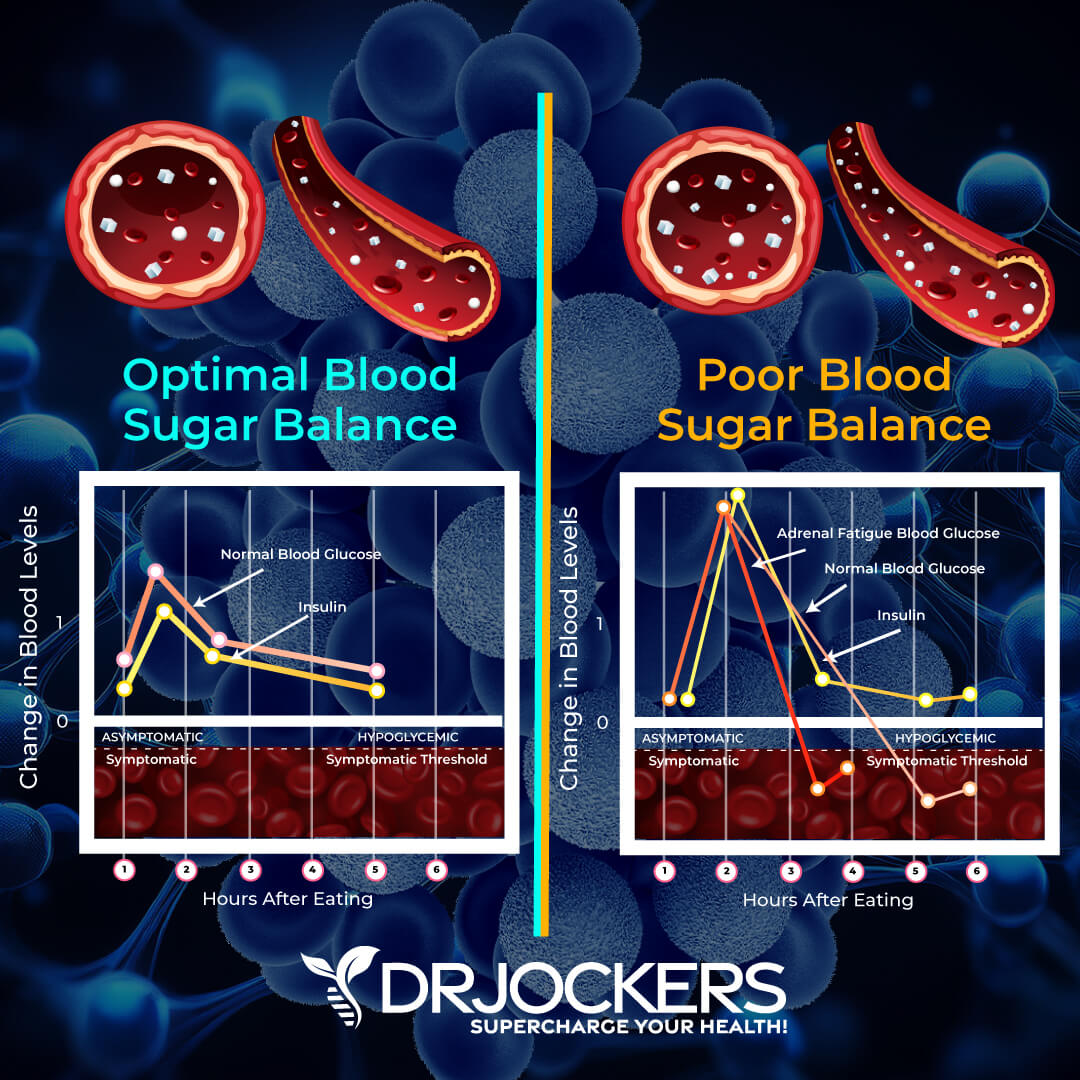
Environmental Toxicity
Toxins are everywhere. They are in our polluted air, our tap water, non-organic and processed foods, plastic products, moldy indoor spaces, and conventional beauty, body, and household products. Unfortunately, these environmental toxins may have a serious impact on our brain and overall health.
Neurotoxins, such as ethanol (in alcohol), glutamate, heavy metals, nitric oxide, botulinum toxin (in Botox), tetrodotoxin, and tetanus toxin, are particularly damaging to your neurological health. Environmental toxicity may increase brain fog, memory problems, anxiety, depression, mental health issues, fatigue, mood swings, irritability, dementia, and neurodegenerative diseases (16, 17, 18).
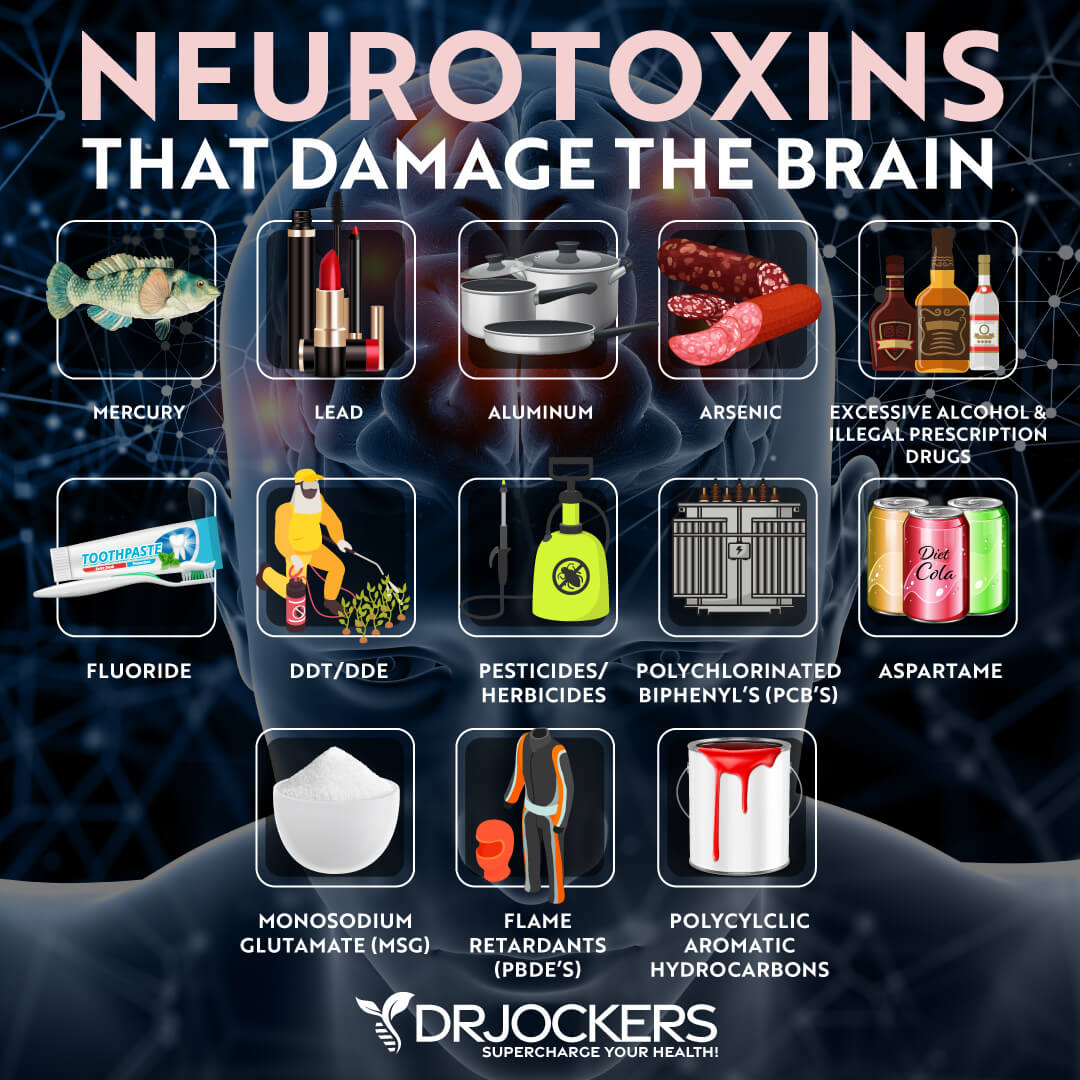
Sedentary Lifestyle
Movement is, of course, critical for your health. But it’s more than your physical strength, toned look, or cardiovascular fitness. Movement is crucial for your brain health as well, especially for those areas of your brain that are important for memory formation.
A sedentary lifestyle causes brain cell degeneration. Research has found that a sedentary lifestyle may increase your risk of memory problems, learning troubles, and cognitive decline (19, 20).
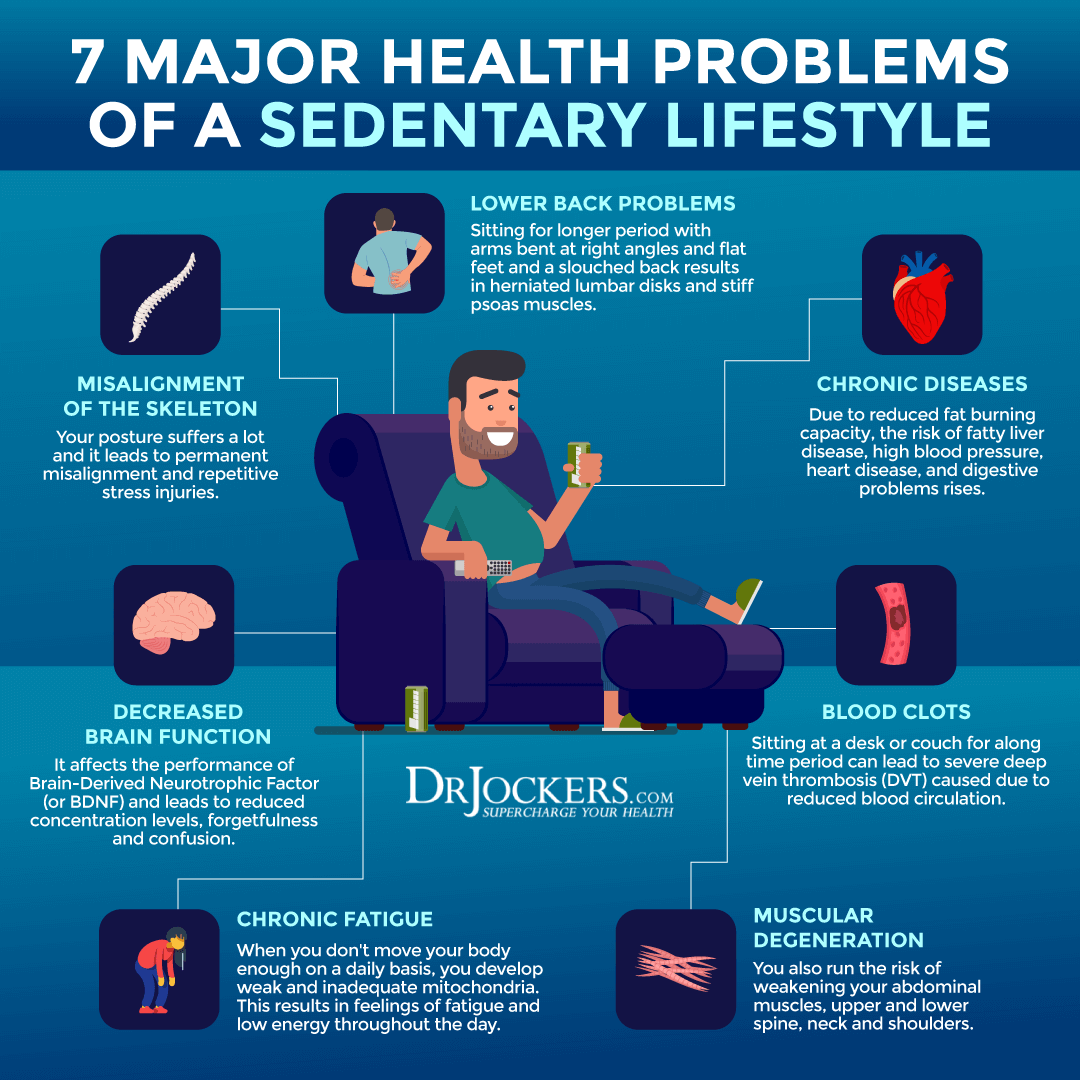
Chronic Stress and Poor Sleep Habits
When you are experiencing stress, the amygdala, the area in your brain that partakes in emotional processing, signals your hypothalamus. As a response, your hypothalamus increases your heart rate encourages deeper intake of oxygen and heavier breathing, heightens your senses, rushes adrenaline in your body, and increases your cortisol levels. When the stress is over, everything should return to normal. However, when you are under stress, this stress response is never over.
Chronic stress leads to a build-up of cortisol in the body. Among many other functions, cortisol helps your hippocampus, where your memories are stored and processed. When you are under chronic stress and there is too much cortisol, it wears your brain down, impairs brain and memory function, disrupts synapse regulation, and kills brain cells. Chronic stress has a seriously negative effect on your memory and learning (21, 22, 23).
Regular poor sleep can also have a serious impact on your brain health. It may increase chronic stress, fatigue, and chronic inflammation, which may lead to brain fog, memory troubles, mood swings, low mood, and learning difficulties. According to research, sleep deprivation may even increase the risk of dementia and Alzheimer’s disease (24, 25, 26).
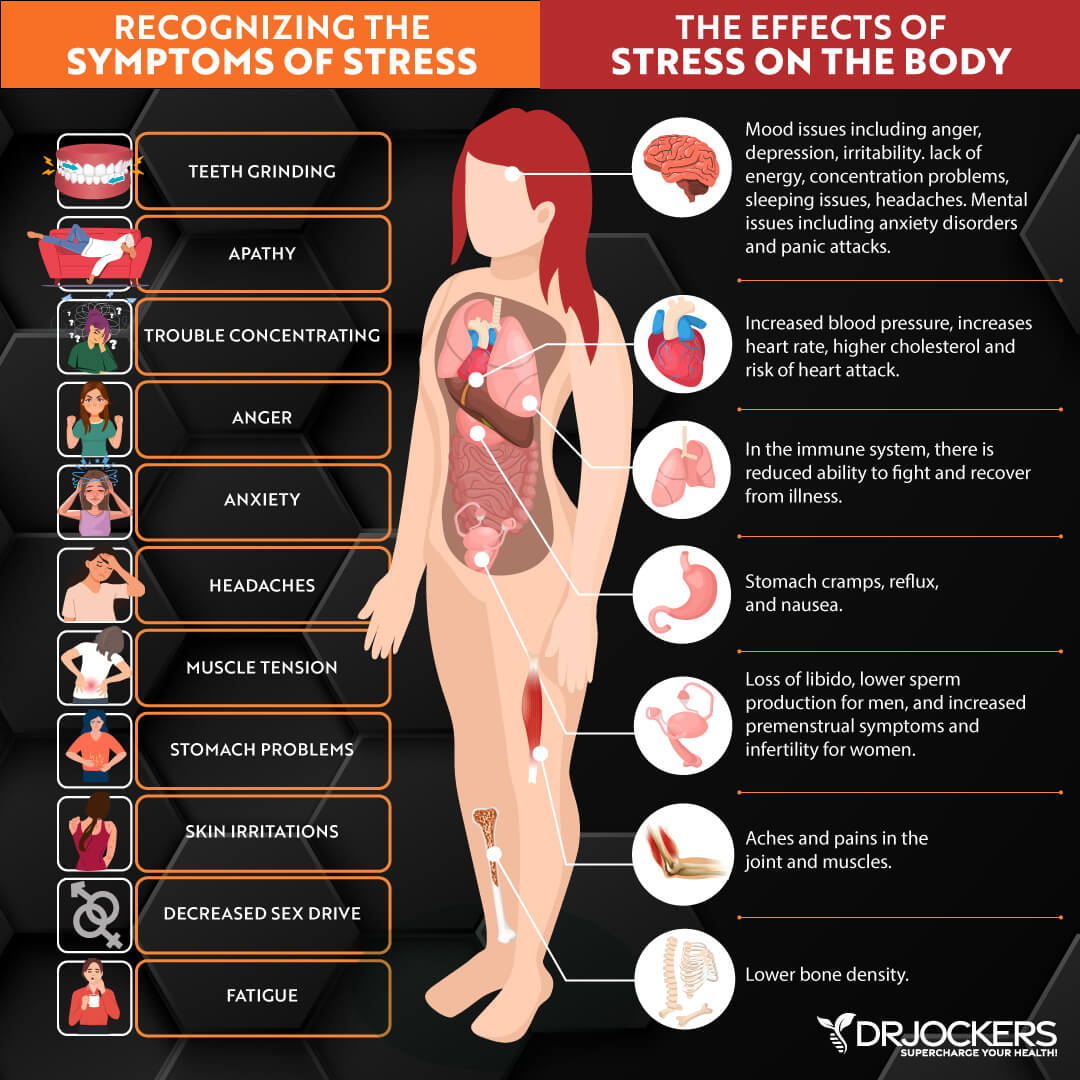
Gut Infections and Dysbiosis
Have you ever experienced stomach problems before an important event, public speaking, or a new date? The connection between our brain and our gut is clear. However, our gut and brain not only affect each other short-term during stressful or exciting events. The communication between the two is on-going, long-term, and intimate.
Gut dysbiosis and gut infections can increase inflammation in the gut and the entire body. Chronic inflammation affects your entire body, not just your brain. Gut microbiome imbalance to mood cognition, and mental health. Digestive problems, gut dysbiosis, and gut infections may increase your risk and symptoms of brain fog, memory problems, learning difficulties, anxiety, depression, and neurodegenerative diseases (27, 28, 29).
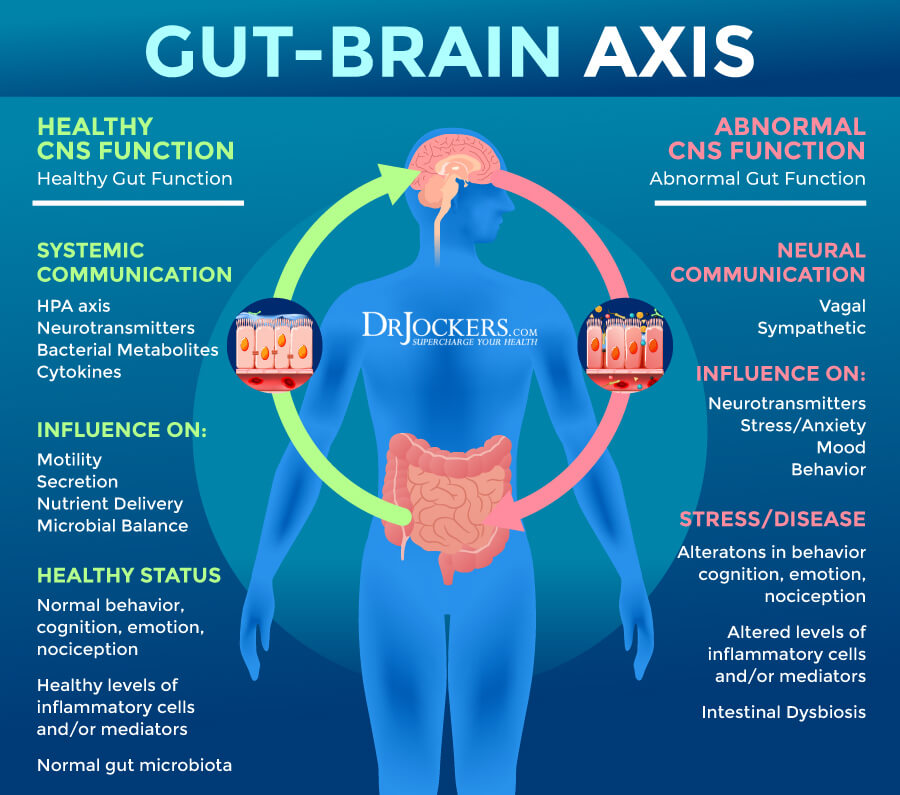
Top 12 Brain Regeneration Strategies
Chances are, you want to say good-bye to brain fog, memory issues, learning troubles, mental fatigue, and low mood. You certainly want to protect your brain from neurodegeneration, dementia, and Alzheimer’s disease.
Read on to learn the top 12 ways to protect and heal your brain cells naturally. Practicing some form of all of these strategies is important for optimizing your mental health and keeping your brain healthy and strong.
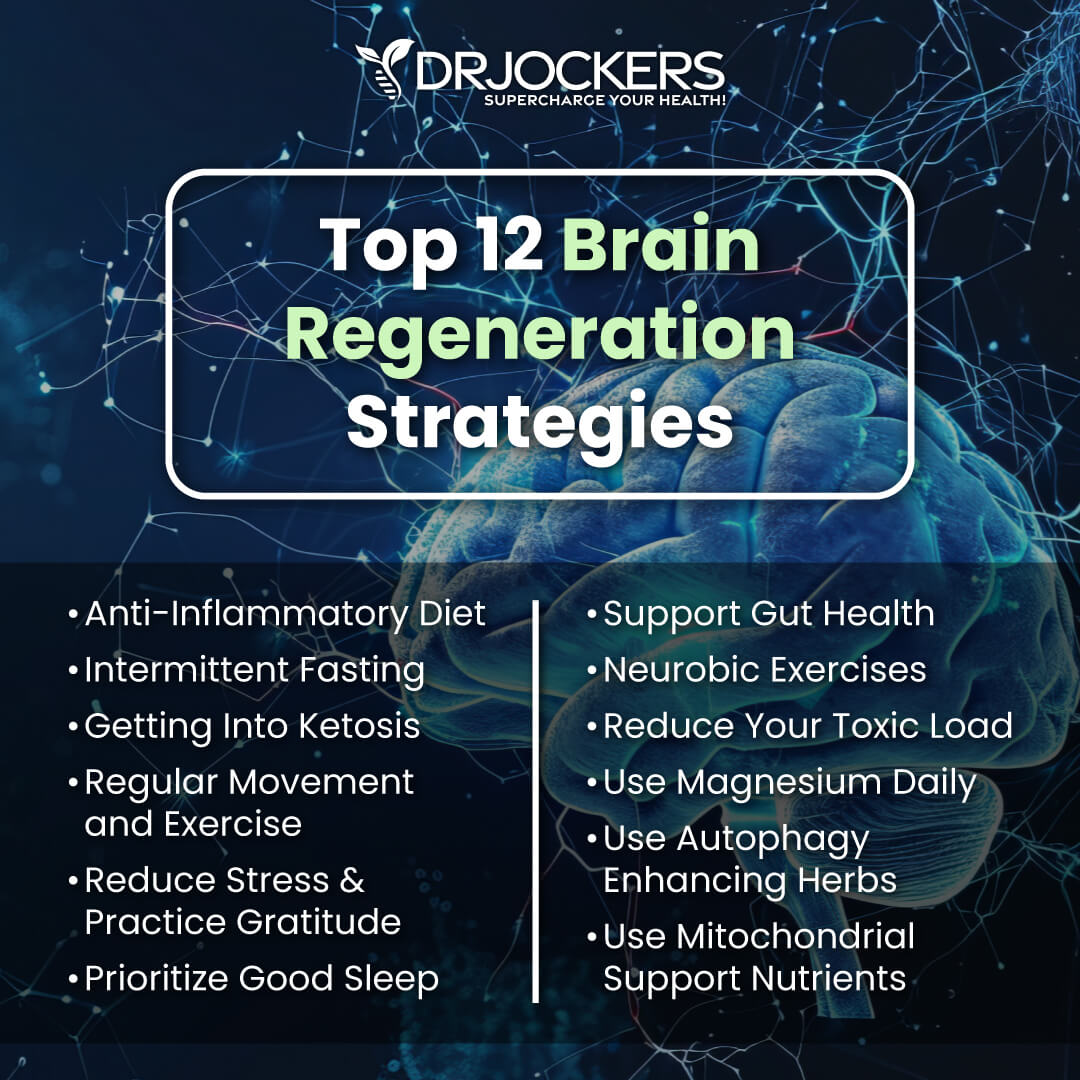
Anti-Inflammatory Diet
Eating an anti-inflammatory diet rich in nutrient-dense foods is critical for your brain health. Begin by removing all inflammatory foods, including refined sugar, gluten, refined oils, deep-fried and processed foods, conventional dairy, grain-fed meat and eggs, soda and sugary drinks, and foods that you are sensitive to.
Instead, eat an anti-inflammatory diet with lots of greens, vegetables, low glycemic index fruits, herbs, spices, healthy fats, grass-fed meat, and wild-caught fish. To learn more about an anti-inflammatory diet, read this article as well.
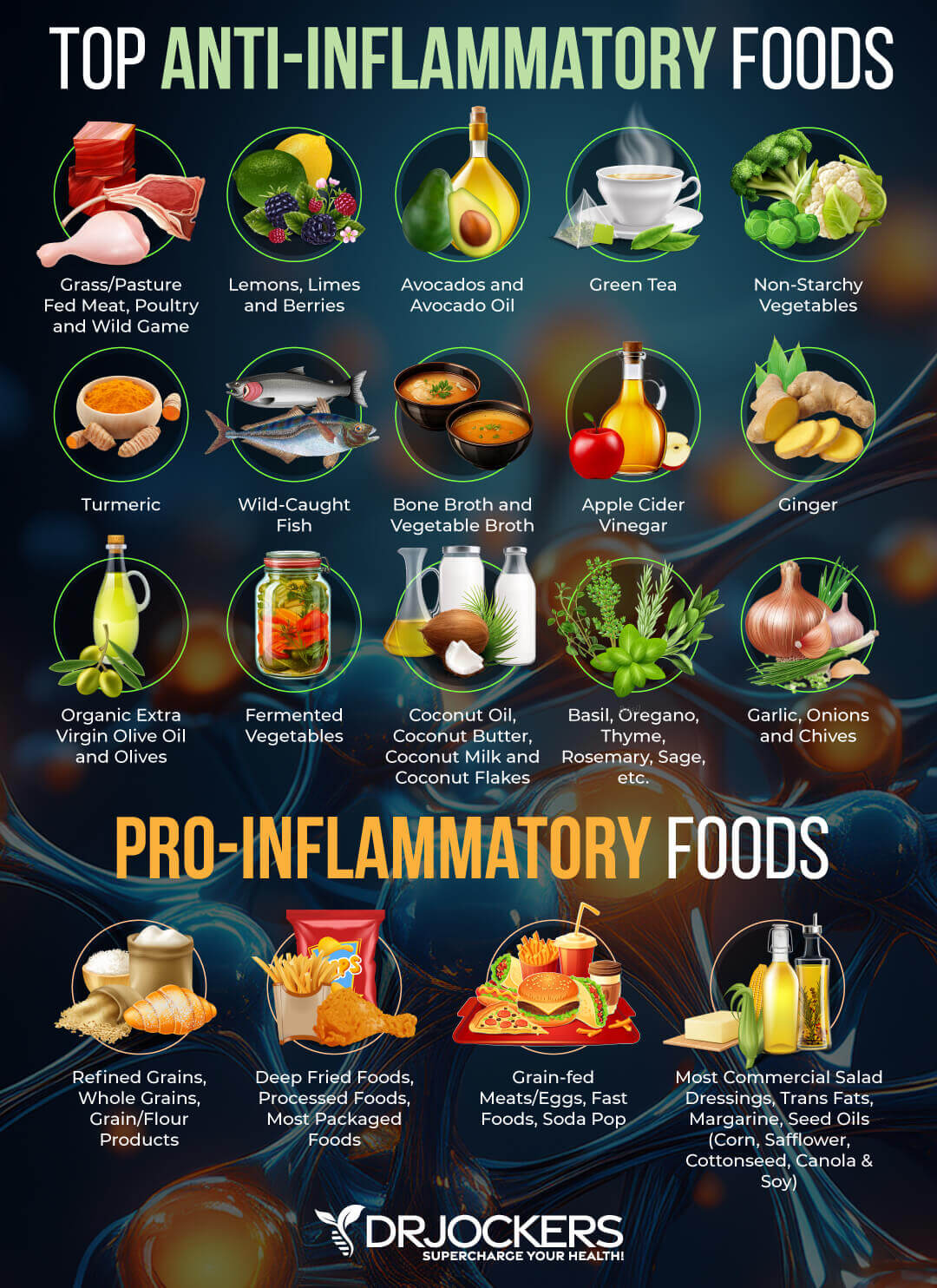
Intermittent Fasting
Intermittent fasting is a fasting strategy that cycles between fasting and eating over a period of time. It helps cellular repair, autophagy, immune regulation, inflammation levels, and insulin sensitivity, and decreases the risk of chronic diseases, including neurodegenerative conditions, such as Alzheimer’s.
Spiritual leaders and philosophers such as Plato have talked about the benefits of fasting in improving mental efficiency, creativity, intuition, and sense of well-being. If you want to learn more about the benefits of intermittent fasting and how to practice intermittent fasting, I recommend this article.
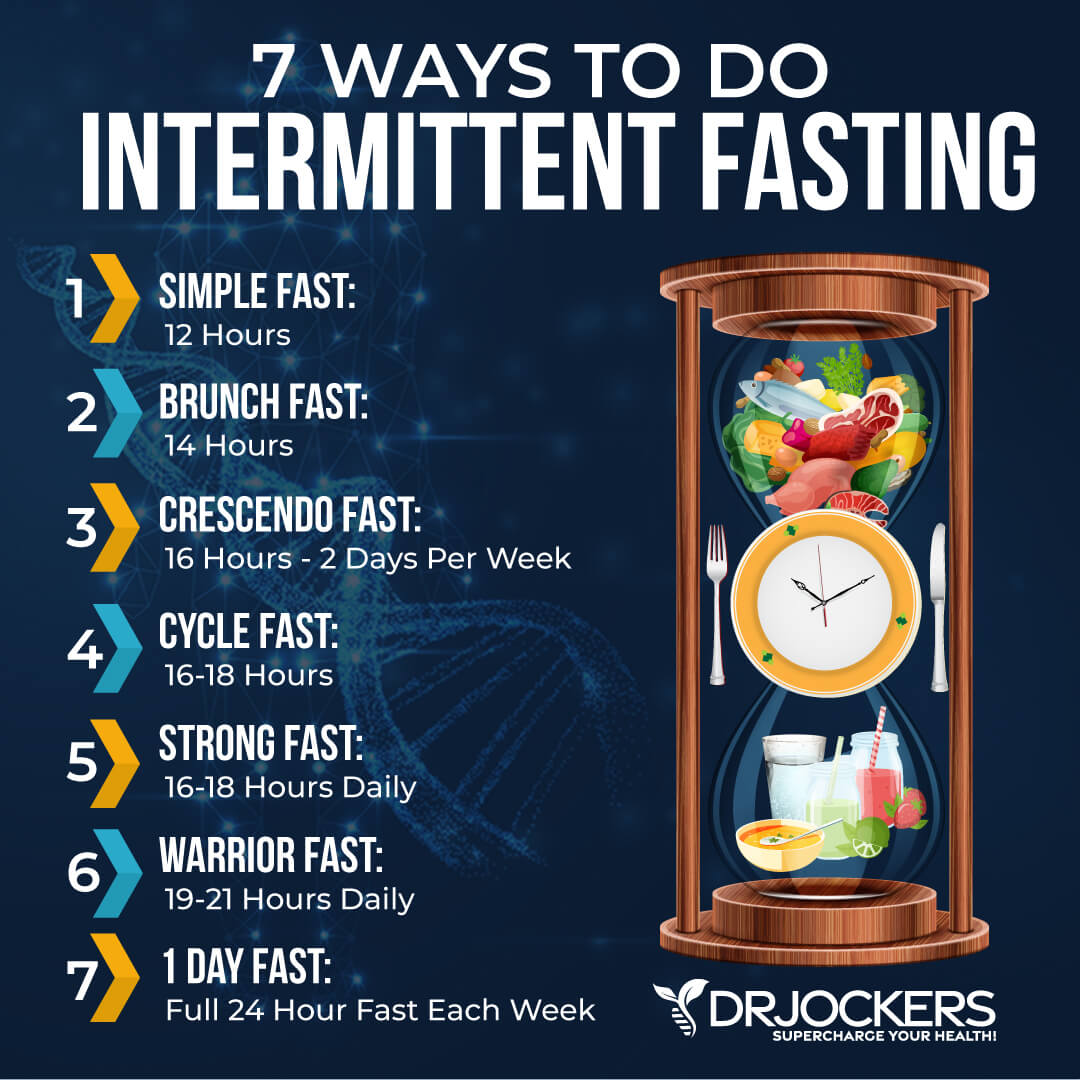
Getting Into Ketosis From Time to Time
Under regular circumstances, most people’s body creates energy by breaking down glucose from dietary carbohydrates. However, when your body doesn’t receive enough glucose supply, it turns to dietary or stored body fat for energy. These fats are converted in the liver into ketones that enter the mitochondria inside your cells to be turned into energy.
This process of ketosis helps to enhance autophagy, reduce inflammation, improve mitochondrial biogenesis, improve brain health, and increase mental sharpness. The best way to experience ketosis is through the combination of the keto diet and intermittent fasting.
I am not saying you have to follow a ketogenic diet all the time, you can vary your nutrition, but actively working to get into ketosis from time to time is extremely beneficial for brain regeneration. To learn more about ketosis, I recommend this article, and to learn more about how the keto diet improves brain health, read this one (31, 32, 33, 34, 35, 36, 37, 38 39, 40).
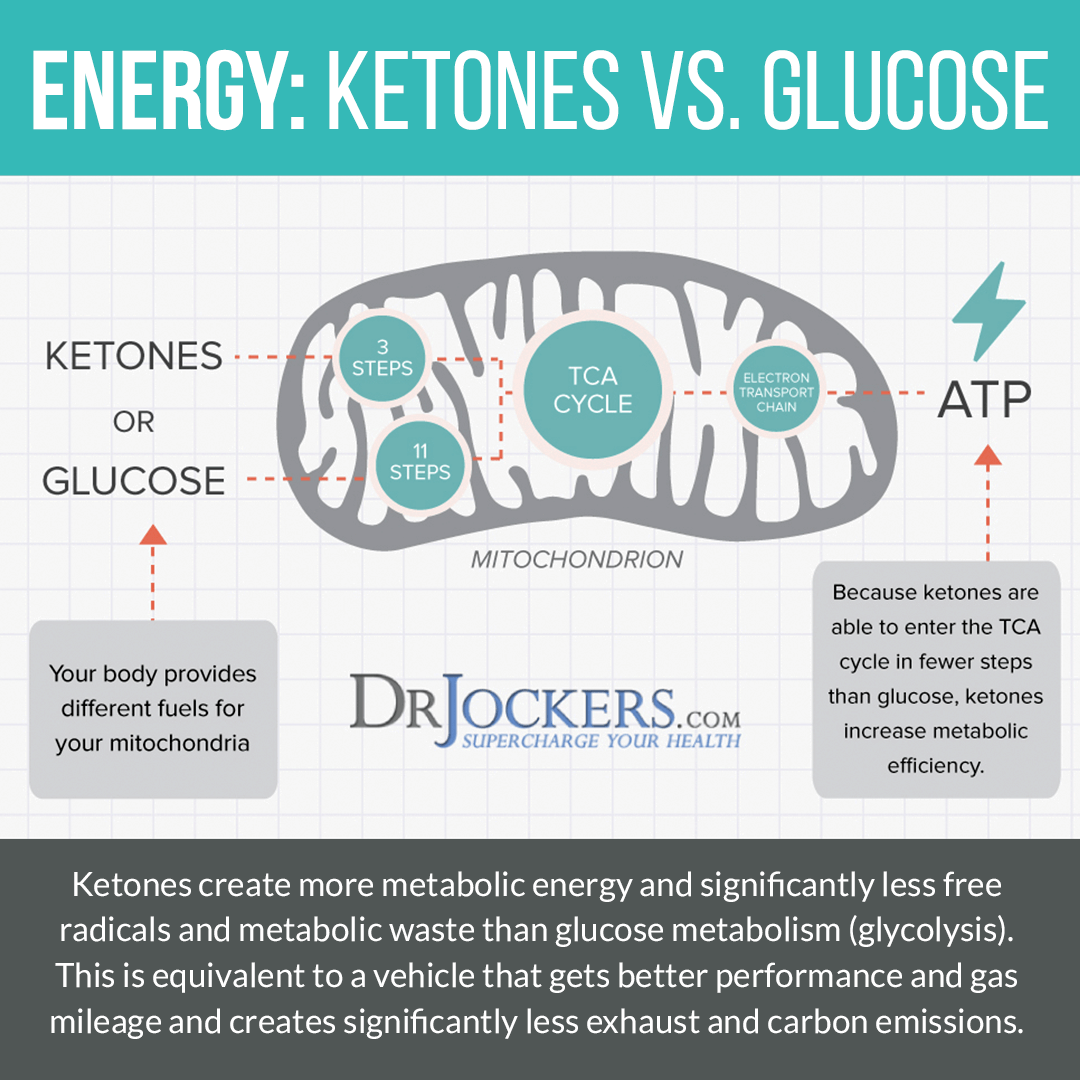
Regular Movement and Exercise
As you’ve learned earlier, regular movement and exercise are not only part of a healthy lifestyle but are essential for brain health. They may help to lower chronic inflammation, reduce stress levels, and decrease the risk of memory problems, learning troubles, and cognitive decline.
I recommend that you exercise at least 20 to 30 minutes minimally 5 times a week. Try a combination of cardiovascular exercise, strength and resistance training, and low-impact exercise. Aim to stay active throughout the day by choosing to take the stairs, taking a walk at lunch, stretching regularly, gardening, and dancing to your favorite song.
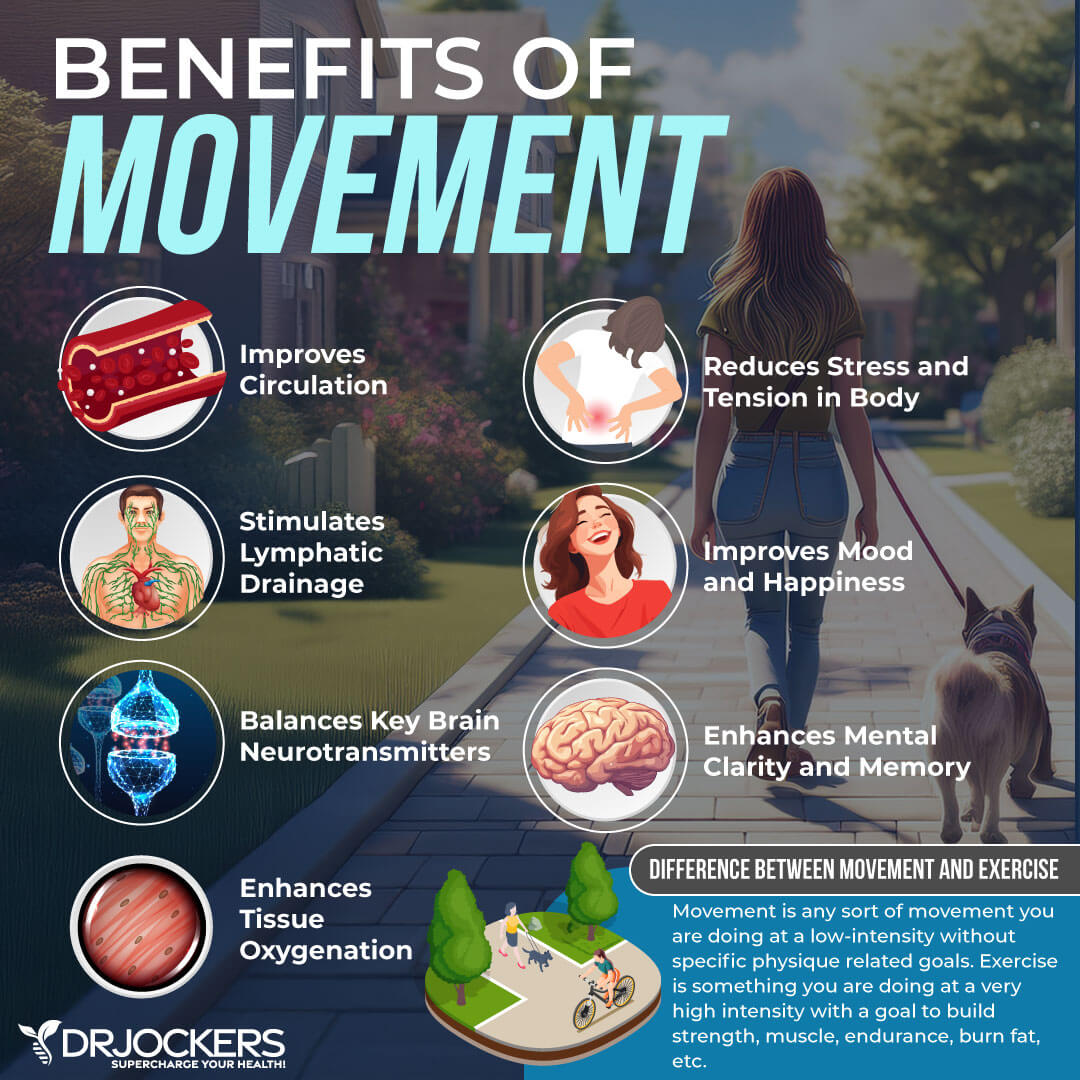
Reduce Stress and Practice Gratitude
Reducing your stress levels is non-negotiable for brain regeneration and mental health. To reduce your stress, try regular meditation, daily prayer, breathwork, journaling, regular exercise, relaxation recordings, daily gratitude, and nature walks. Practice positive self-talk and affirmations for a powerful mindset and mood shift.
Practice daily gratitude and prayer. Keep a daily gratitude journal and count your blessings throughout the day. Remember, when you are in a state of gratitude, negative energy, stress, and anxiety have no room.
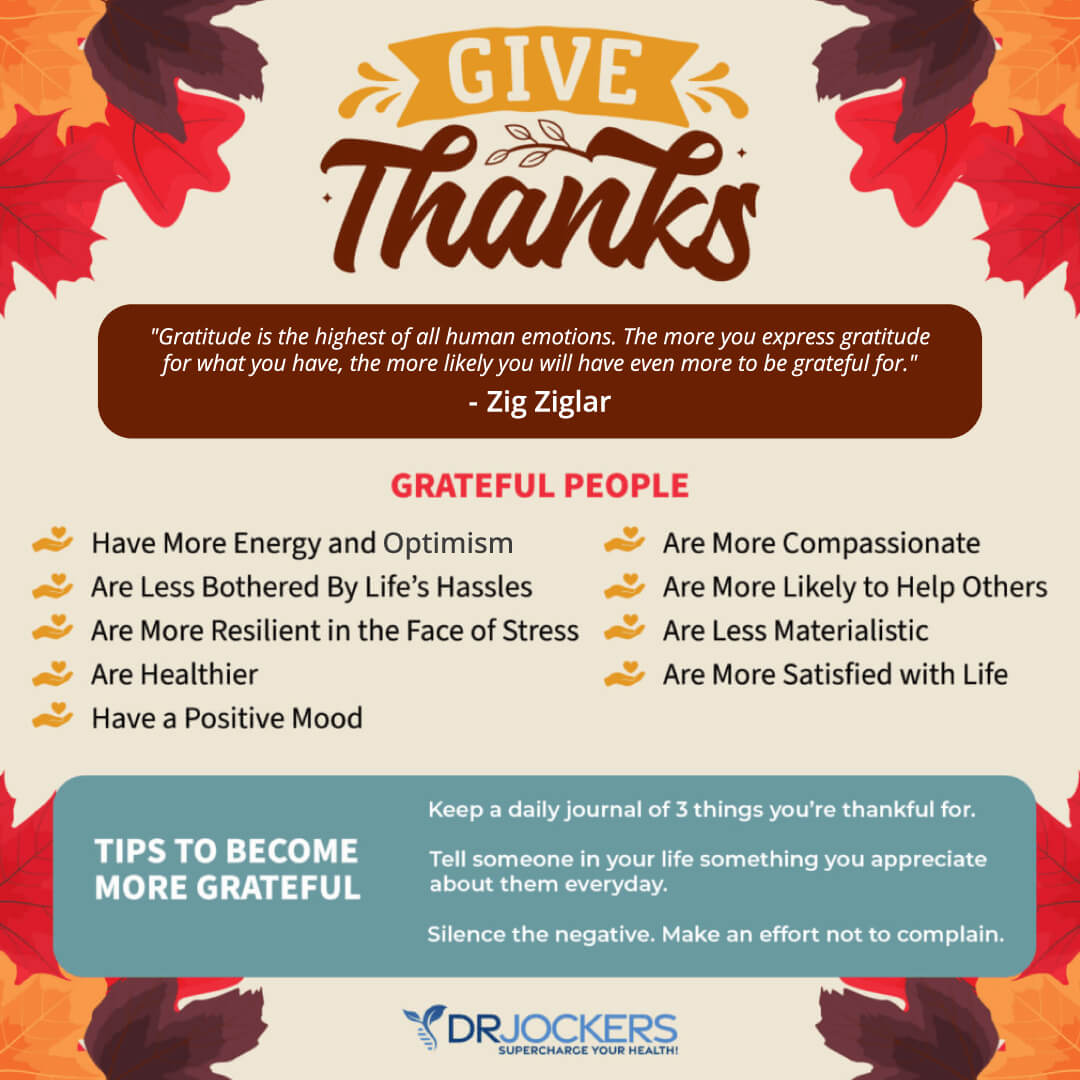
Prioritize Good Sleep
Prioritizing good-quality sleep is critical for your brain regeneration and mental health. It is essential for rest, repair, and cellular rejuvenation. Develop a regular nighttime routine that relaxes your body before sleep and works for you. Avoid sugar and caffeine throughout the day, especially in the evening.
Turn off your electronics several hours before bedtime. Engage in relaxing activities. Meditate, journal, read, stretch, and sip on some herbal tea. Make sure that you have a comfortable bed, bedding, and pillows. Try some black-out curtains or a sleep mask.

Support Gut Health
As you’ve learned, your brain and gut are closely connected, hence supporting your gut is absolutely necessary to heal your brain cells. Eating a gut-friendly, anti-inflammatory, and nutrient-dense diet is a must.
Additionally, support a gut microbiome balance with healthy bacteria by eating probiotic-rich foods, such as sauerkraut, kimchi, and kefir, and taking a daily probiotic supplement.
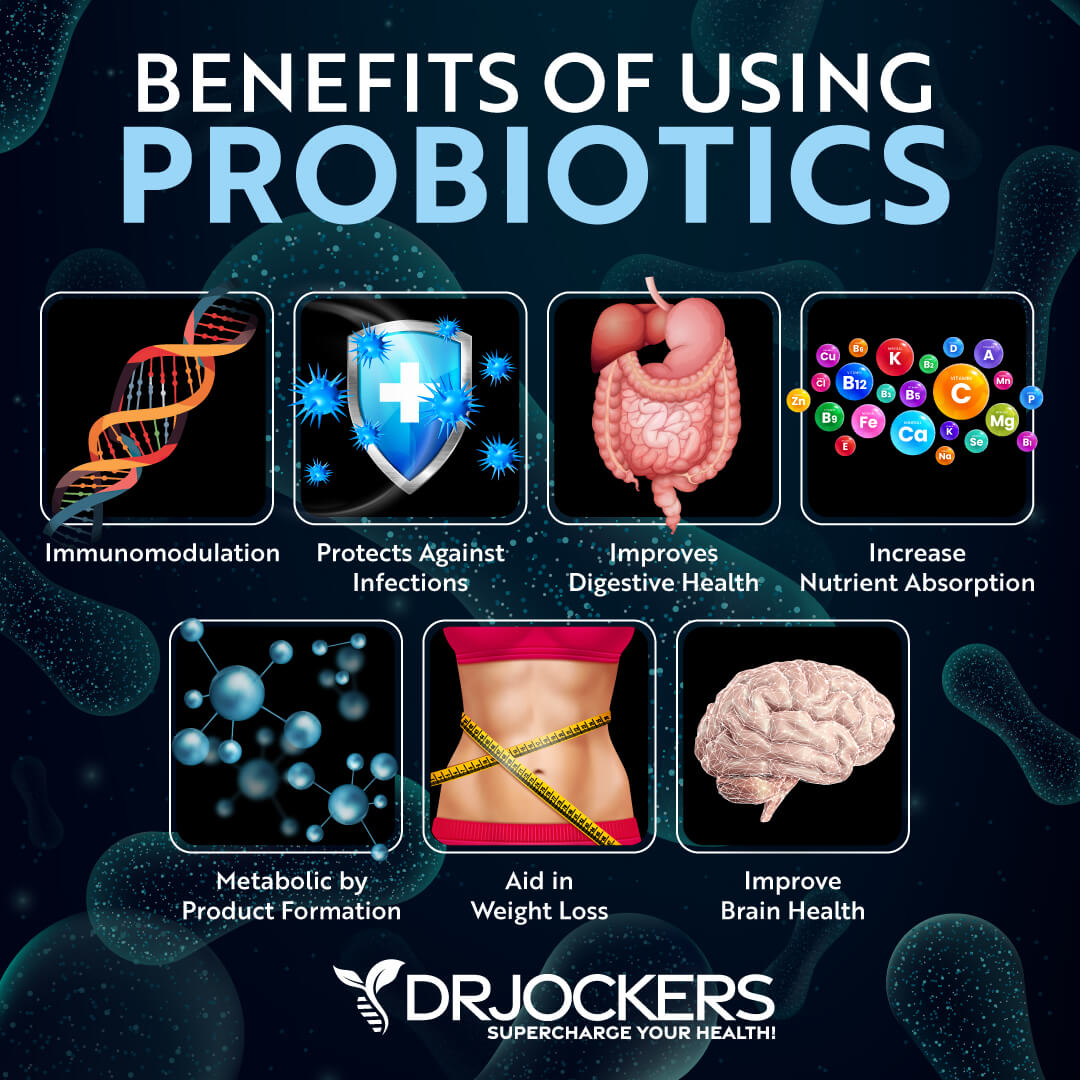
Neurobic Exercises
Neurobics is a term used to describe the physiological effects of unique and non-routine ways of thinking and moving and their effects on the brain to improve memory, learning, mood, and mindset. These exercises can help stimulate brain regeneration by challenging the brain to think and move in unique ways.
Neurobics exercises include balancing on one leg, crossword puzzles, trying a new instrument, using your non-dominant hand, barefoot walking, and journaling. To learn more about the benefits of neurobic exercises, I read this article (41, 42, 43, 44, 45).
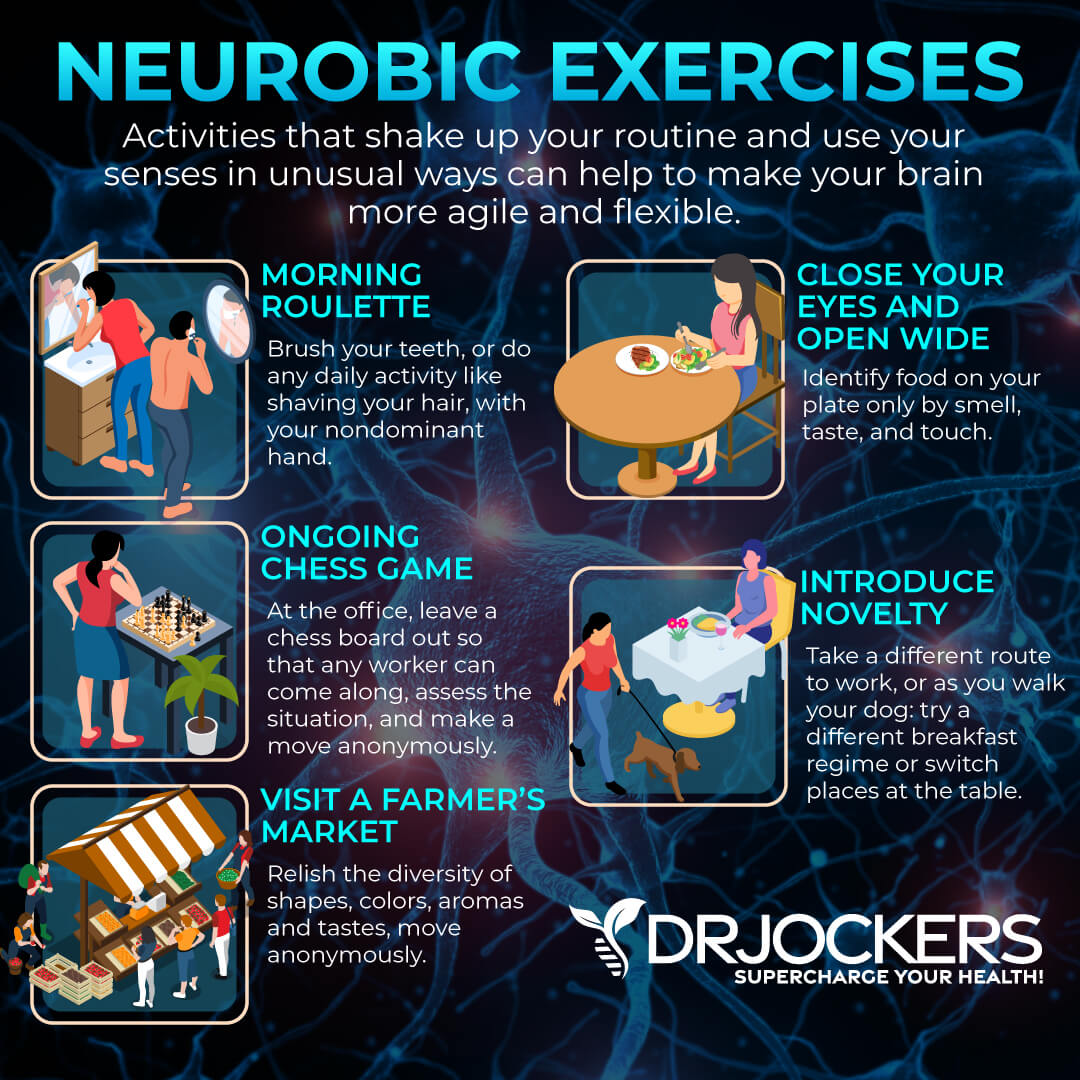
Reduce Your Toxic Load
To optimize your brain health, you cannot forget about reducing your toxic load. Eat organic foods as much as possible. Remove conventional beauty, body, and household products, and replace them with organic, natural, or homemade alternatives.
Spend time in nature as much as possible. Getting good water filtration is also especially important. You can also get a quality Berkey filter or take it up a notch and use a hydrogen water system which adds molecular hydrogen to combat oxidative stress and improve immune health.
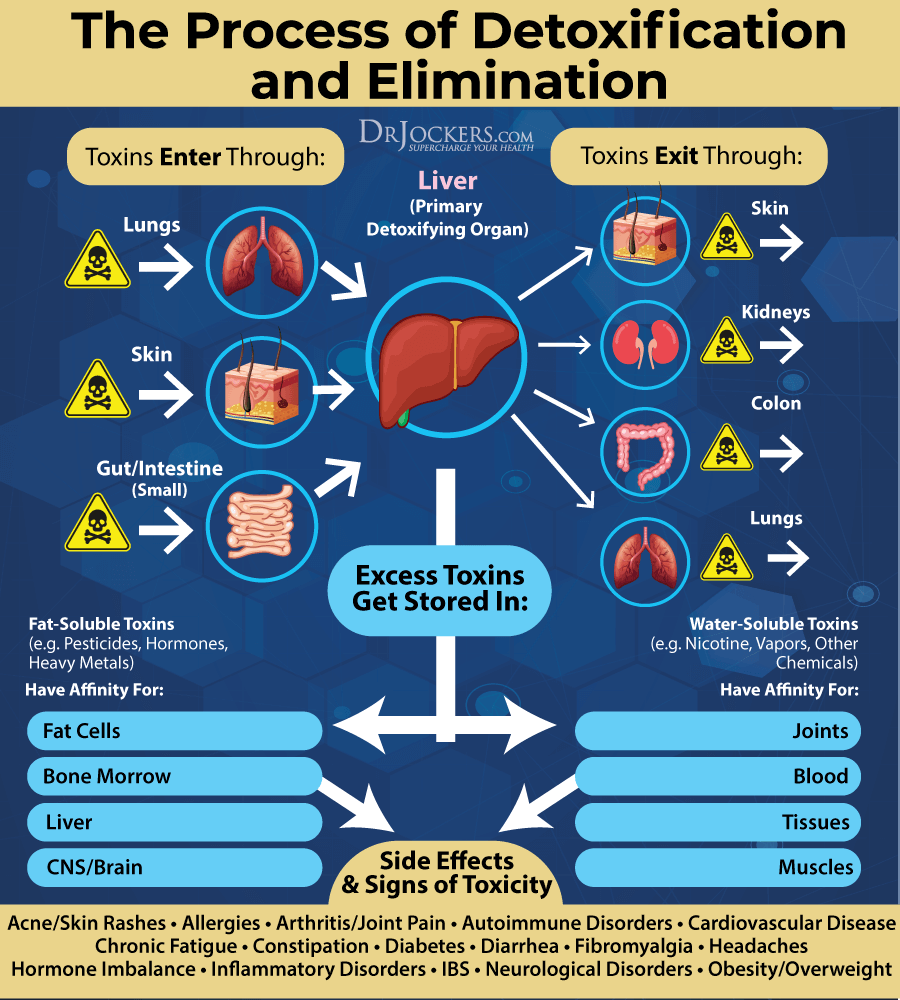
Use Magnesium
One of the key nutrients to address for proper brain regeneration is magnesium. Magnesium is critical for brain health, mental health, relaxation, and stress relief.
I recommend Brain Calm Magnesium to boost your magnesium levels. It helps muscle function, healthy nerve conduction, neurological function, energy production, mood, and mental health. Dissolve one scoop in 6 oz of cool, pure water. Take it once a day at night.
Use Autophagy Enhancing Herbs
Autophagy is your body’s natural method of detoxification. It allows your body to recycle and get rid of old and unhealthy cells leaving room for the creation of new and healthy cells to replace them. To heal your brain cells, I recommend autophagy-enhancing herbs, including matcha green tea, ginger, turmeric, resveratrol, citrus bergamot, oregano, sage, rosemary, and quercetin.
This is why I recommend Inflam Defense™, a powerful supplement made with turmeric, ginger, boswellia, quercetin, rosemary, and rutin. To learn more about the top autophagy-enhancing herbs, I recommend this article.
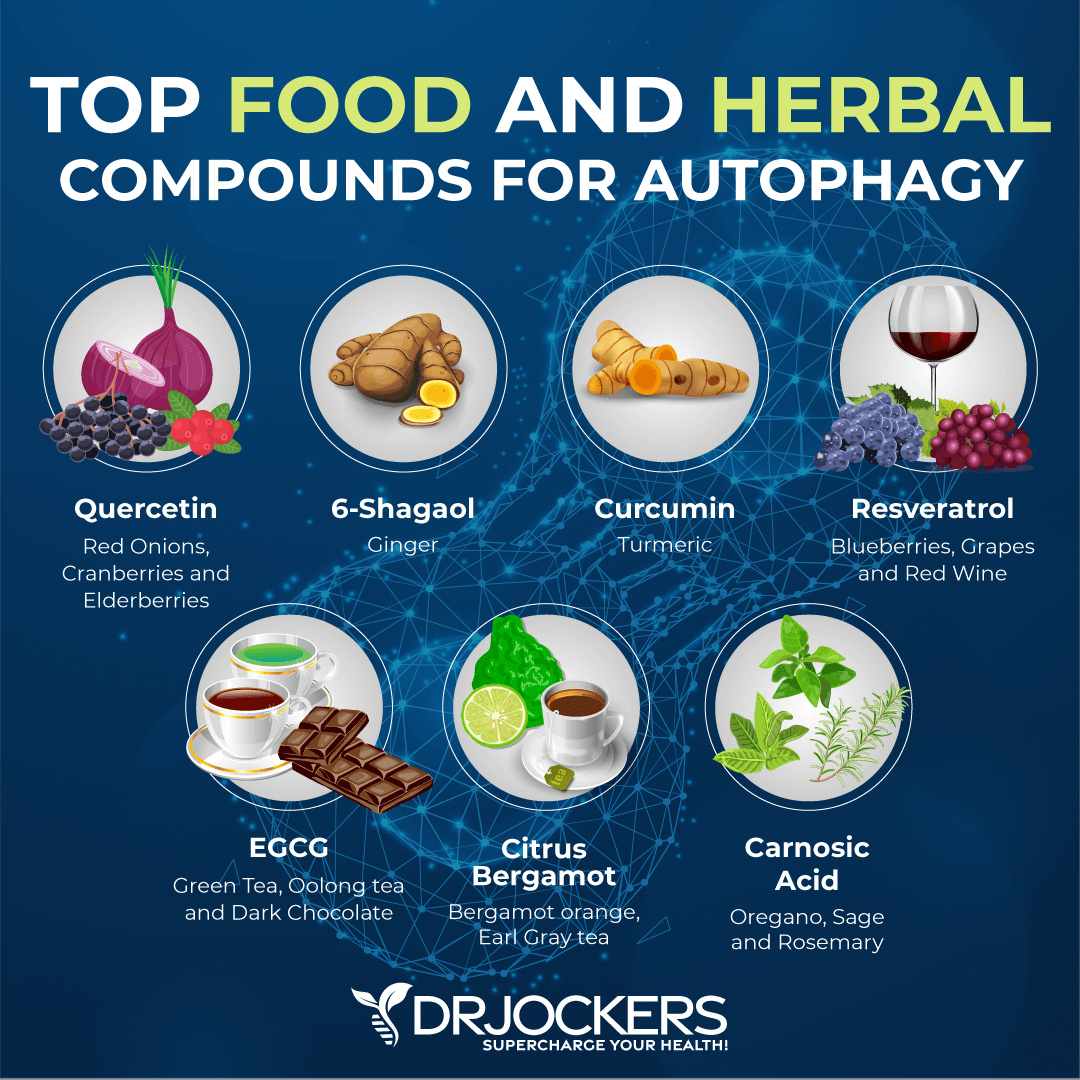
Use Mitochondrial Support Nutrients
For optimal brain health, I also recommend that you support your mitochondrial health. Mito Support™ was designed to support the function of the mitochondria, which is the powerhouse of your cell and the key cellular health.
It is a blend of nutrients, nutraceuticals, botanicals, and Krebs cycle intermediates designed to support efficient mitochondrial metabolism and energy (ATP) production for increased vitality. It supports brain health, cognition, mental health, and healthy energy levels. Supporting your mitochondria is a key principle for brain regeneration.
Bonus: Consider Hyperbaric Oxygen Therapy
For additional support, consider hyperbaric oxygen therapy. It has been shown to raise tissue oxygen levels, encourage new blood vessel growth, increase your body’s defense system, reduce swelling, increase stem cells, and support optimal health.
Brain regeneration can be enhanced with the use of hyperbaric oxygen therapy on a regular basis. To learn more about hyperbaric oxygen therapy, I recommend reading this article (47, 48, 49, 50, 51).
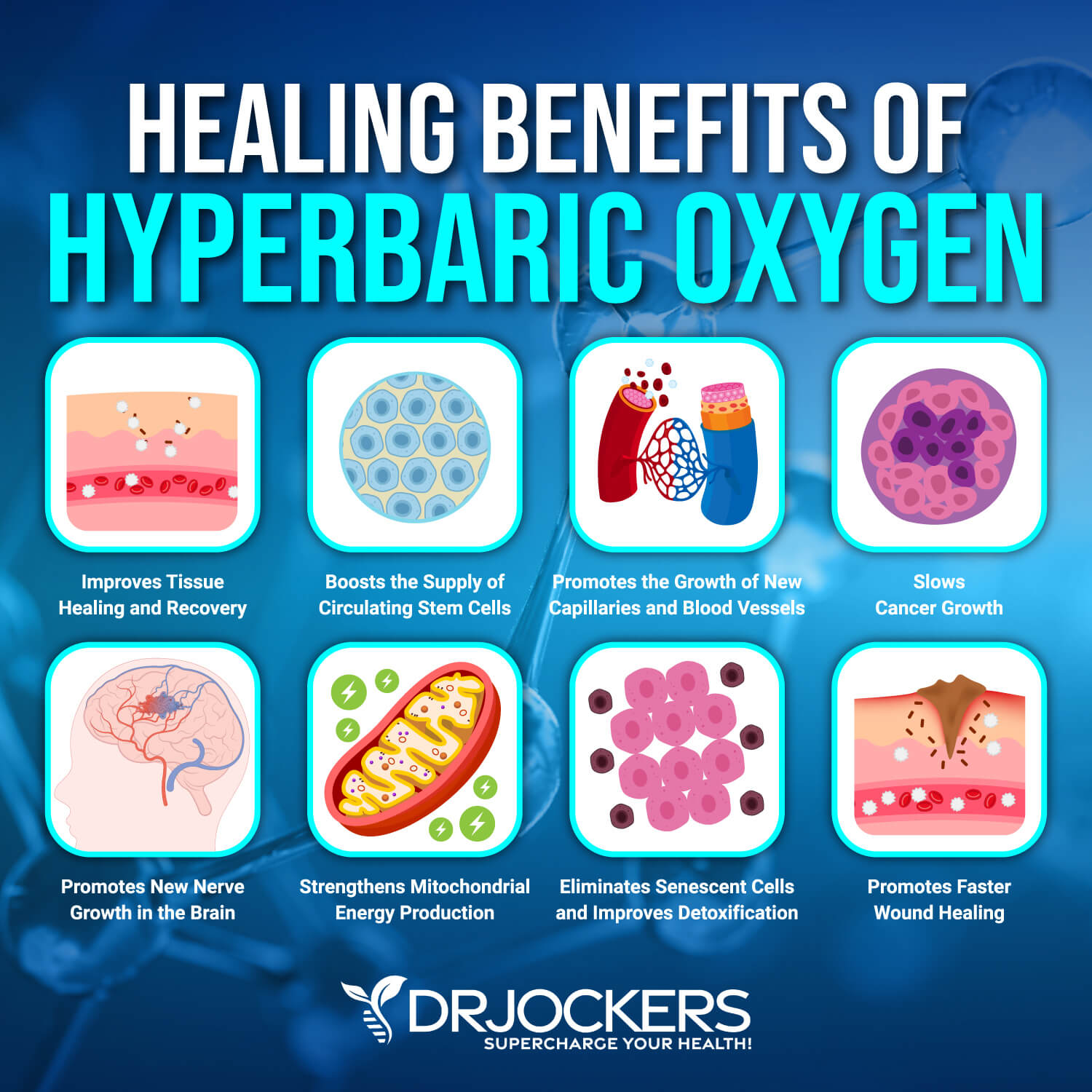
Final Thoughts on Brain Regeneration
Your brain health is essential for memory, learning, mental sharpness, mood, and mental health. The good news is that your brain is able to regenerate and create new cells throughout your life.
Brain regeneration is a powerful topic that should empower us to live at a higher level. Follow my 12 tips to heal your brain cells and support your brain health naturally. For more info on how to activate your body’s innate healing ability, check out my free Brain Regeneration Guide.
If you want to work with a functional health coach, I recommend this article with tips on how to find a great coach. On our website, we offer long-distance functional health coaching programs. For further support with your health goals, just reach out—our fantastic coaches are here to support your journey.
Inflammation Crushing Ebundle
The Inflammation Crushing Ebundle is designed to help you improve your brain, liver, immune system and discover the healing strategies, foods and recipes to burn fat, reduce inflammation and Thrive in Life!
As a doctor of natural medicine, I have spent the past 20 years studying the best healing strategies and worked with hundreds of coaching clients, helping them overcome chronic health conditions and optimize their overall health.
In our Inflammation Crushing Ebundle, I have put together my very best strategies to reduce inflammation and optimize your healing potential. Take a look at what you will get inside these valuable guides below!






What’s your take on the travel berkey – https://www.bigberkeywaterfilters.com/travel-berkey-water-filter.html
It is very good!
wie steht es mit ganz geringen Dosen von THC. Prof. A. Zimmer from Bonn university found
that elder mice became younger with new cells in their brain when nourished with very small doses of THC. So what measures with THC could help?
gauri@blic.net
Thanks for sharing!
good review but you missed Mycotoxins and mold. Especially for 25% population sensitive. Accidental poisoning Sept 3 ruined my Brain and mitochondria. Many mold detox protocols later and many other treatments, I am only a little better. Continuing treatment and hope. Blessings to you. And thank you for having audio only option on your summits for people with limited data.
Cindy
Yes mycotoxins and molds are a serious issue. Praying you will get better quickly!!
Hi, I’m interested in the Inflam Defense pills, but you don’t ship to Hungary. May I ask, why?
All the best: Nora
Unfortunately, Hungry has strict rules with shipping supplements into the country and we are unable to ensure that products will get to the customer. So we are unable to ship there.
I appreciate how well this information has been presented and have shared it with a number of people. Thanks for the good work!
Thank you!
Hi Dr J, loving your very helpful articles, especially about brain regeneration for my son who had a stroke. However, he also has an artificial heart valve and is on warfarin (blood thinners) so a whole lot of the anti-inflammatory foods and helpful supplements he cannot take as they interfere with the blood thinner meds (eg. magnesium, green tea, avocados, all green leafy veg in fact, and many others). Any advice for him?
Sorry to hear this! I would do the best you can and work with a functional health practitioner to customize a plan for him!
Hi Dr Jockers,
This is a very well explained article! I am particularly interested as my Granddaughter has had many brain surgeries,(after suffering from a stroke at 3 days old,an emergency c-section at 34 weeks,then a VP shunt for hydrocephalus.She was the size of a 30 week foetus,so small for dates as well)
Current Medications : cloBAZam 10 mg tablet, Take 15 mg (ONE AND A HALF tablets) by mouth TWICE a day,
lacosamide 100 mg tablet, Take 100 mg (ONE tablet) by mouth TWICE a day,
lacosamide 200 mg tablet, Take 200 mg (ONE tablet) by mouth TWICE a day,
midazolam 5 mg/mL injection, Apply 5 mg (1 mL) into the nostril(s) up to TWICE a day when required for seizures,
Lily has previously been on levetiracetam, oxcarbazepine, valproate, carbamazepine and perampanel.
She also has Dilantin sod capsules 100mg x10,when she is able, after a tonic clonic at home, to try to prevent seizure clusters.
Surgical History
25/08/2015 LOBECTOMY (Right) temporal and occipital lobectomy
25/08/2015 REMOVAL OF VENTRICULOATRIAL SHUNT (Right) proximal shunt removed – fractured in neck
11/04/2017 CORTICECTOMY (Right) corticectomy of right middle and inferior frontal gyri
11/04/2017 REMOVAL OF VENTRICULOPERITONEAL SHUNT (Right) has residual in chest wall and abdomen
15/12/2020 IMPLANTATION OF INTRACRANIAL ELECTRODES (Right) frontal and insula lobes
22/12/2020 CORTICECTOMY (Right) corticectomy and disconnection of residual right frontal and anterior insula cortex
15/06/2021 COMPLETION OF TEMPORAL PARIETAL OCCIPITAL DISCONNECTION (Right)
She had a Sentiva vagus nerve implant in October 2021.Still not seizure free,which is just heartbreaking after all these invasive surgeries.
A hard life for a 17 year old,no normal activities can be undertaken,and that is so unfair,Are there any modalities that you consider would be beneficial?
Regards,
Annie
She then went on to have a Sentiva Vagus Nerve Implant last October 2021.Still not totally seizure free,and she still takes three seizure medications. I do make Magnesium Jellies(using Calmful sleep
chamomile and dandelion teas, and lemon juice,and also add some Taurine powder,after reading of the benefits for the nervous system,along with Gelatine.I make bone broth in the Instant pot,and she eats well.Is there anything else that is beneficial,keeping in mind she has hominous hemianopia,after the hemisphectomy.She takes frisium,Vimpat
Very sorry to hear about these issues. I would recommend finding a functional health practitioner to get a thorough evaluation and a customized plan: https://drjockers.com/functional-nutrition-tips-to-find-a-great-health-coach/
I am a big fan of intermittent fasting. I’ve always had one question I could not find the answer to!
I take morning medication. Does this change anything? Do I stay in Ketosis?
Hello Mary, most medications are fine but some (such as corticosteroids) will impact your blood sugar and ketones but the only way you know for sure is if you test your blood glucose and blood ketones both pre and about 30-60 minutes after taking the medication.
I’m a follower of your powerful articles. I’m currently on two interesting drugs. I take high blood pressure tablets and prostate brands capsules. Do I qualify to any of the intermittent fastings?
Yes I would strongly consider doing intermittent fasting on a regular basis to improve your health!
Excellent researched article on brain regeneration. Thank you.
Hello, I was reading your article on the brain. My grandson is 17 now but at birth his umbilical cord prolapsed and they did an emergency C-section. From the approximate 25-30 min with reduced oxygen there is some brain damage…he’s very mobile and has some good brain function because he can read and manipulate an iPad like crazy but does have some ‘on the spectrum’ tendencies and isn’t grade level in school but has amazing critical thinking, but he can’t walk independently (gross motor and fine motor are issues) and he doesn’t talk. We’ve done lots of things over the years. He is amazingly very healthy overall and doesn’t take meds. I have known for a long time that neuroplasticity is legit…but I’m curious if you have seen (or know if it’s possible for) brains to repair and regenerate in children that have this kind of damage due to lack of oxygen at birth…could his muscle tone normalize and could he begin to speak words, and if so what suggestions could possibly make the most impact? Thank you!
TMS – Transcranica magnetic stimulation (you may also call it PEMF on you head)
and
Transcranical photobiomodulation (that is red light therapy on the head)
is a great helper and healer.
Hi i was wondering since you talk a lot about brain functions . I have a brain tumor on left back side of my brain and in 2003 I was in a bad snowmobile accident I hit a tree on that side of brain and was knocked out for a little bit. Do you have any requests on what could help iam getting MRI ever 6 months and nothing shows it’s growing for the last year and half .